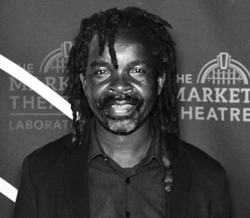Africa A State of Mind: book carries fresh, free of Western gaze narrative of Africa through photography produced by African photographers
By Edward Tsumele, CITYLIFE/ARTS Editor

The Motherland, Africa, a continent where humanity traces its origin to, has inspired many books, TTV programmes films and documentaries. That on its own should not surprise anyone, given its history of having given life to humanity.
However some of the gaze on the continent especially emanating from writers, historians and story tellers in several forms from the West tended to misrepresent the continent. And of course some of these misrepresentations are acts of omission and ignorance. But unfortunately a great deal of the narrative of the continent from the Western gaze are pure crimes of commission and mischief, such as exoticising the continent its people and its animals to feed into the broad West’s stereotype of the Motherland as an untouched continent, still an infant when it comes to civilisation. This view was especially popular during the 19th century when the West expanded its imperialism project on the continent.
But of course over the years another kind of narrative in post -colonial Africa took root, portraying the continent differently, a continent that is complex and rich not only in minerals, but culture and its diverse practices as well. This narrative gained popularity especially in the recent past with the concept of decoloniality having seized several Pan African scholars and intellectuals, gained momentum. IN the recent South African student protest Fees Must Fall, decoloniality gained current momentum.
It is in this context that the book Africa State of Mind: Contemporary Photography Reimagines A Continent, should be read and understood. Published by Thames & Hudson, with over 250 photographic illustrations by some of the most important visual voices on the continent spanning several years, this is definitely a book to have for collectors. It is a priceless book that in fact tells the complicated history of Africa differently. It tells the history of Africa in its complexity by visual story tellers of the continent. These are photographers who have found their own voice, their own way of representing the continent in an authentic way. With powerful and insightful text by its author internationally respected writer Ekow Eshun, Africa State of Mind: Contemporary Photography Reimagines A Continent, which comes in a Coffee Table format is distributed by Jonathan Ball Publishers in South Africa.
The book is divided into three sections of punchy text and thought provoking images that tell the diversity and nuances of a continent that has evolved over the years.

The subject matters covered by these photographers are also varied. For example George Osodi a Lagos based photographer specialises in photojournalism, art photography and documentary photography. IN this book is work focuses on the royalty of the Niger Delta. He has captured beautifully several sovereigns replete in their traditional royal garb. They look elegant the way his Osodi captured their images. They almost look like fashionistas.
On the other spectrum of fashion, South African photographer, who is now based in France, Lelo Veleko has captured the fashion trends in the streets of Johannesburg in a manner that simply demonstrates that despite other social problems South Africa faces, especially youth unemployment and substance abuse in marginalised communities, the youth are proud of how they look. Other South African photographers featured in the book included, Musa Nxumalo, Sabelo Mlangeni, Santu Mofokeng and Guy Tillim, among others.
This book should rate as one of the best when it comes to representing the visual voices of Africa spanning several generations. The photographers come from different regions of the continent and the pictures portray the diversity of a continent in flux.
For example South African photographer, Nbukho Nqaba;s camera .lens focusses on travellers who leave the city heading home, carrying their shopping in the famous plastic bags
On the other hand, Atomg Atem whose parents haul from Southern Sudan, and she was born in Ethiopia, her infant years spent in a refugee camp in Kenya, and now is in Wales, focuses on post-colonial imagery.
“The first photographs ever taken of Africans were colonial ethnographic descriptions that presented the subjects in a really skewed problematic way- I wanted to see what happens when we turns the lens on ourselves and subvert that ethnographic gaze,” she reflects in the book.










